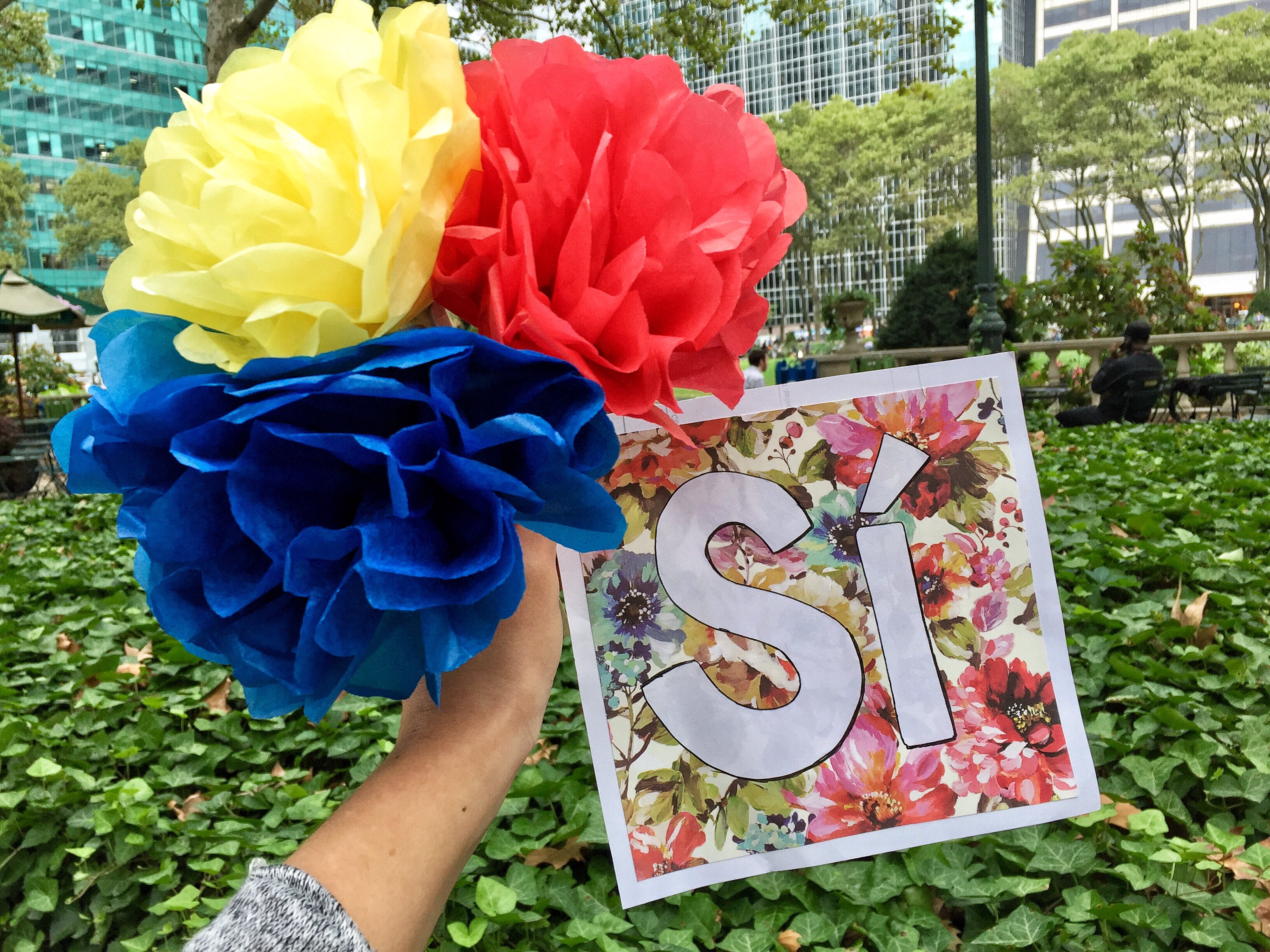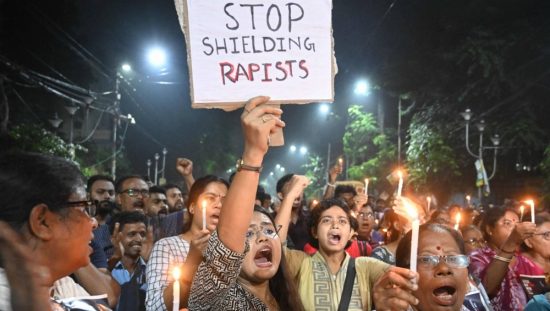What do you first think of when I say I’m Colombian?
Coffee? Sofia Vergara? James Rodríguez? Maybe. But I would be surprised if most of you didn’t first think about cocaine, Pablo Escobar, or Netflix’s Narcos.
Truth be told, that image is not entirely unreasonable. There was a time during the 1980s and 1990s when my country was on the brink of becoming a failed state; the drug cartels controlled the world’s cocaine market and held powerful influences over the politics and economy of Colombia as a result of their wealth.
For decades, we have battled illicit drugs being grown on our soil and sold abroad. In addition to this, our government has fought a long war against left-wing guerrilla groups that have controlled vast amounts of rural territories. The drug economy has actually supported these groups’ operations and funded their terrorism for years – some Revolutionary Armed Forces of Colombia (FARC) units subsist by taxing coca growers and smugglers, while other commanders are deeply involved in the drug trade – which is why it is not wrong to say that every gram of Colombian cocaine sold abroad carries some of our blood with it.
The largest remaining guerrilla group, the Revolutionary Armed Forces of Colombia (FARC), has engaged in peace talks with the government since 2012. Earlier this year, they finally reached an agreement. The deal, which must be ratified by voters in a plebiscite on October 2, promises a remarkable chance for us to finally put an end to more than half a century of violence. Beyond ending the violent conflict, peace in a country that has dwelled in warfare for what seems like an eternity also means reduction in defense spending that can be redirected towards education, healthcare, and job creation.
The agreement, negotiated in Havana, Cuba, includes comprehensive structural reforms that could allow our country a chance to reduce inequality and increase social investments. For example, a provision supporting much-needed agrarian reform promises to create a fund of land from which to give back to farmers and peasants who have been displaced as a result of the conflict. The purpose is to bridge the gap between Colombia’s prosperous urban centers and the historically neglected countryside.
As negotiated in the agreement, FARC members would surrender their arms, agree to never seek political aims through armed violence, and halt their involvement in the production and trafficking of illicit drugs. FARC members would also be allowed to participate in the political process and to run for office in legislative elections in 2018. The treaty would also set aside a minimum of five seats for them in the House and Senate. Additionally, it would set up a special tribunal for peace and justice, through which those who admit to grave crimes would receive amnesty from jail time, but would be subject to periods of restricted mobility for five to eight years.
Notably, the agreement is also packed with gender-related provisions, which affirm that women’s empowerment is key to rural development and political participation. It also widely acknowledges gender-based violence during the conflict and sets up a Gender Sub-Commission in post-conflict arrangements that would oversee victim reparations and support for female survivors.
But as the world celebrates this historic peace negotiation, internally, Colombians seem more divided and polarized than ever. With the plebiscite vote coming up soon, strong arguments have been launched for and against the deal, with social media campaigns accompanied by strong and hateful “evidence” to support why the opposing side is not only wrong, but unpatriotic. Family conversations over the dinner table and even group chats seem to quickly devolve into arguments, and both the supporters and opponents of the deal seem to be unwavering and un-compelled by the other side.
After the better part of a century, there is finally silence where before there were gunshots, and clear skies where before there were warplanes. It is now when we should be celebrating that silence, sticking together in our shared hopes for a peaceful future. Yet we can’t seem to do it.
The unfortunate truth is that Colombia today is not divided among those who want peace and those who want war, or between those who seek justice and those who favor forgiveness. It is divided by politicized rhetoric headed on the one side by the president, Juan Manuel Santos, and on the other by Former President and Current Senator and head of the opposition, Alvaro Uribe Velez.
While Santos sees himself as the architect of the peace deal, Uribe has launched a strong campaign and civil movement against it, claiming that citizens “are handing over the country to the FARC,” “succumbing to Castro-chavismo,” and leading Colombia down the path of Venezuela by allowing the political participation of left-wing former rebel fighters. The opposition is also concerned with the lack of justice – the lack of jail time – for FARC members, and the fact that under the agreement they would be given a monthly stipend by the government. They also lack trust in the overall veracity of FARC’s commitments.
It is contradictory, however, that many of those making arguments against the peace deal, including Mr. Uribe himself, were comfortable having very similar arrangements with the United Colombian Self-Defense (AUC) paramilitary forces that were disarmed under an agreement with Uribe’s government in 2008. Additionally, when speaking about a possible peace deal with the FARC during his presidency, Uribe favored many of the provisions agreed to under the current deal. Seemingly, what has mattered most during these campaigns is not the content of the peace deal but the politics and rivalry behind those who have orchestrated it.
In many ways, Colombia has gotten stuck in a partisan argument fueled by fervent and often blind support for political figures. We have allowed the differences and hatred between two politicians to deeply divide us, and we have allowed them to take our chance at peace and our future for themselves. It seems as though many Colombians have not even taken the time to read what was agreed upon in Havana, or to reflect on the merit of the accords. Rather, they accept their favorite politicians’ Twitter feeds as the source of truth.
It is time that we as a nation understand that this peace deal does not belong to Santos, and the alternative is not Uribe’s. We must rise above the politicking and think about the victims of this senseless war: the hundreds of children recruited and forced to bear arms, the girls raped, the millions displaced from their homes, the dozens of innocents who have been maimed or killed by landmines, of our fallen troops and their sacrifices, the acres of land that have been lost to illicit crops, the billions spent on fighting this war instead of funding healthcare or education.
When thinking about our country’s history it is truly senseless to talk about revenge or punishment when crimes and perils originate from a complicated background of injustice, violence, corruption and abuse; when our land has seen both right and left wing groups carry out unspeakable acts against humanity and common decency; when our own government and military has, at times, participated in those crimes.
We owe it to ourselves, to the victims, and to our future to retake our own agency and do our part in rebuilding our broken nation. Nothing can erase our pain, but we have in our hands a true chance at making sure it does not carry over to our next generation, a chance at raising children who will only know war through history books. The deal may not seem ideal to many, but it does provide a solid chance to pave a way for peace and to end the longest-running conflict in the Western hemisphere. And it all begins with our vote next Sunday. Let’s be sure to take that chance.



